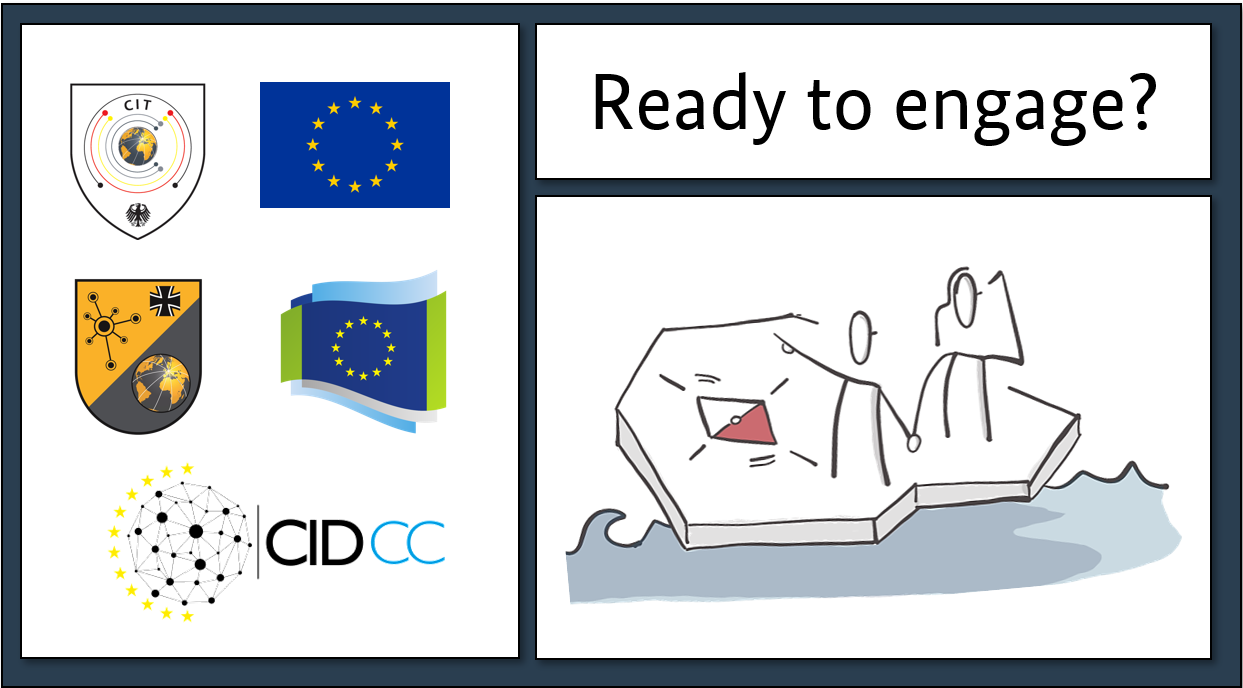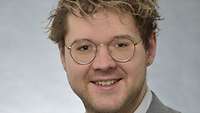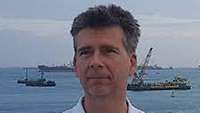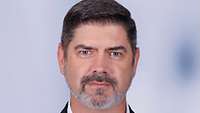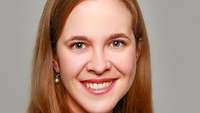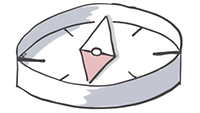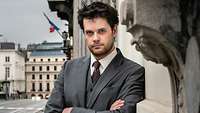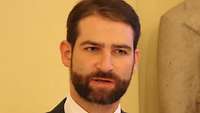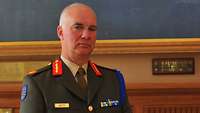EUEuropäische Union CSDPCommon Security and Defence Policy Innovation Day
Der Cyber- und Informationsraum ist hart umkämpft. Dies verdeutlicht insbesondere der zerstörerische Angriffskrieg Russlands gegen die Ukraine. Die EUEuropäische Union hat die Dimension CIRCyber- und Informationsraum als Schauplatz von Krisen und Kriegen erkannt und daraus strategische Herausforderungen abgeleitet. Wie diesen begegnet werde kann, soll am EUEuropäische Union CSDPCommon Security and Defence Policy Innovation Day diskutiert werden.
Nehmen Sie am EUEuropäische Union CSDPCommon Security and Defence Policy Innovation Day teil, um die Auswirkungen von künstlicher Intelligenz und zeitgenössischer Geopolitik auf soziale Interaktion und Anpassungsmaßnahmen zu untersuchen. Entdecken Sie die Möglichkeiten, die zivile und militärische Widerstandsfähigkeit im Zeitalter des strategischen Wettbewerbs und komplexer Sicherheitsbedrohungen zu erhöhen.
Teilnehmerkreis aus dem internationalen Umfeld
- Austausch ermöglichen – das ist da Motto dieses Tages. Im Mittelpunkt stehen die direkten Gespräche zwischen den Anwesenden. Mehr stehen als sitzen – gemeinsam diskutieren statt einzeln zu dozieren. So sollen im Kontext der Gemeinsamen Sicherheits- und Verteidigungspolitik vielseitige Verbindungen und innovative Ideen entstehen.
- Dazu haben wir interessante Menschen aus unterschiedlichen Organisationen und Nationen eingeladen. Die Teilnehmer kommen aus ganz Europa, der „Brüsseler Betrieb“, dem akademischen Betrieb, der Industrie und dem Militär.
- In der ungezwungenen Atmosphäre des CIHBwCyber Innovation Hub der Bundeswehr sollen zwei Panel-Diskussionen Impulse setzen und zu Gesprächen über Herausforderungen und Chancen aktueller geopolitscher und technologischer Entwicklungen anregen.
- Vier marktführende Technikunternehmen und vier Innovationsvorhaben nutzen das offene Forum zur Präsentation ihrer Lösungsvorschläge und setzen so weitere Anreize zur Unterhaltung.
Agenda
| 10:00 – 10:40 | arrival |
|---|---|
| 10:40 – 11:00 | Opening Mr. Sven WEIZENEGGER, Head of CIHBwCyber Innovation Hub der Bundeswehr |
| 11:00 – 11:20 | Keynote Speech Lieutenant General Michael VETTER, Director General Cyber/ITInformationstechnik and Chief Information Officer at the German Ministry of Defence |
| 11:20 – 12:00 | PANEL ARTIFICIAL INTELLIGENCE: ambitions – conditions – reality Mr Robert SEIDEL, Cyberagentur (Moderator) Mr Jonas CEDERLÖF, EUEuropäische Union CION (DG DEFIS) Prof Dr. Maximilian MOLL, FI CODE Mr Lars RUTH, Deloitte Ms Vanessa VOHS, UniBwUniversität der Bundeswehr München |
| 12:10 – 13:15 | networking, open discussion, marketplace Get in touch with each other and address innovative topics with our exhibitors |
| 13:15 – 14:00 | Standing lunch |
| 14:00 – 14:40 | PANEL GLOBAL POWERS: Learn and adopt from confrontations Colonel (GSGesetzliche Schutzaufgaben) Sönke MARAHRENS, Hybrid CoE (Moderator) Dr Kenneth LASOEN, University of Antwerp Dr Tassilo SINGER, Capgemini BrigGen Sean WHITE, EUMS Mr Mark WOODS, Splunk |
| 14:40 – 16:20 | networking, open discussion, marketplace Get in touch with each other and address innovative topics with our exhibitors |
| 16:20 – 16:40 | Closing speech Vice Admiral Dr. Thomas DAUM, Chief of the Bundeswehr Cyber and Information Domain Service |
16:40 | Farewell message |
Interesse geweckt?
Unter dem nachfolgenden Link haben Sie die Möglichkeit, sich zum EUEuropäische Union CSDPCommon Security and Defence Policy Innovation Day anzumelden.
Innovationstreiber vor Ort
Startup Traversals
Territoriales Krisenwarnsystem basierend auf KIkünstliche Intelligenz - Auswertung und Alarmierung der Software bringt einen Nutzen/Zeitgewinn für MilNwMilitärisches Nachrichtenwesen auf Kommando Lvl
Verbesserung von Informationsbasis & Lagebild durch Einbezug offener Quellen, Beschleunigung der Informationsbereitstellung durch KIkünstliche Intelligenz, Entlastung von Routineaufgaben, Erhöhung der Reaktionsfähigkeit in Krisensituationen.
„Offen verfügbare Informationen formen die Gefechtsfelder der Zukunft – jeder und alles kann eine Datenquelle sein – OSINTOpen Source Intelligence ist nicht mehr wegzudenken.“
Hierbei handelt es sich um eine optische drahtlose Technologie zur Datenübertragung. Im Gegensatz zu WLAN oder anderen Funktechnologien arbeitet Li-Fi mit dem Spektrum des Lichts – genauer gesagt mit sichtbaren Licht oder Infrarotstrahlung. Ziel ist es, die Datenübertragung im Spektrum des sichtbaren Lichts für die militärische Nutzung zu prüfen. Mit der Lösung ermöglichen wir eine stark verkürzte Auf- & Abbauzeiten von Gefechtsständen sowie hohe Abstrahlsicherheit – ein echter Fortschritt.
„In Zukunft werden in Gefechtsständen mobile Endgeräte und Smart Devices die Informationsdarstellung bestimmen – hierzu benötigt es geeigneter kabelloser Datenverbindungen.“
Wie zur Zeit im UKR-RUS Krieg ersichtlich, ist ein Force-on-Force Training essentiell, um die notwendige Ausbildungstiefe der Soldaten erreichen zu können, sodass diese in modernen Konflikte bestehen können. FACT idient der lasergestützen Ausbildung infanteristischer Grund- und Schießfertigkeiten insbesondere in der Einsatzvorausbildung und im Häuserkampf zur Simulation realitätsnaher Gefechtssituationen.
Das Innovationsvorhaben FACT stellt wesentliche Vorteile gegenüber der herkömmlichen Ausbildung dar und kann bei geringeren zeitlichen, kostentechnischen und organisatorischen Aufwand einen höheren Ausbildungserfolg erzielen.
„Militärisches Üben legt die Grundlage für den Erfolg im Einsatz. Hierfür braucht es einen hohen Realitätsgrad, möglichst geringe Komplexität und maximale Flexibilität – gerade in der Gefechtsausbildung und in Duellsituationen“.
Baugruppentracking mit dem Startup Formation
Im Zentrum der App steht die interaktive Karte, mit der der Nutzer schnell und einfach Arbeitsmaterialien und Kollegen finden sowie Aufgaben oder Besprechungen verwaltet. Zudem kann standortspezifisches Wissen in Form von Points of Interest auf der Karte eintragen oder IoT-Geräte interagiert werden.
Dies steigert die Effizienz durch Reduzierung von Totzeiten, ermöglicht aktives Tracking von Fahrzeugen und Baugruppen innerhalb der Liegenschaft, verbessert die Arbeitszufriedenheit und optimiert die Prozesse in der Instandsetzung.
„Das IKEA Problem: Wo sind die Schrauben und wer hat den Inbussschlüssel verlegt?
Zu wissen wo sich was, wann und in welchem Zustand befindet ist nicht nur beim neuen Regal essentiell, sondern auch für die Instandsetzung der Bundeswehr unablässig.“
Splunk helps make organizations more resilient. Leading organizations use our unified security and observability platform to keep their digital systems secure and reliable. Organizations trust Splunk to prevent security, infrastructure, and application issues from becoming major incidents, absorb shocks from digital disruptions and accelerate transformation. Splunk helps SecOps, ITOps and DevOps teams deliver these outcomes with comprehensive visibility, rapid detection and investigation, and optimized response, all at the scale necessary for the world's largest digitized organizations.
Splunk is building a safer and more resilient digital world. Organizations rely on Splunk to prevent security, infrastructure and application issues from becoming major incidents, absorb shocks from digital disruptions, and accelerate transformation.
Wir versorgen unsere Kunden mit vertrauenswürdigen Daten - Wir helfen ihnen, die benötigten Informationen in einem Meer von Daten auf sichere und effiziente Weise zu finden. Wir versetzen sie in die Lage, die richtigen Entscheidungen zu treffen und schneller und sicherer auf Herausforderungen zu reagieren, von der Grenzsicherung bis zur Katastrophenhilfe.
CyberRange ist eine komplexe virtuelle Umgebung, die für die Ausbildung im Bereich der Cyber-Kriegsführung und die Entwicklung von Cyber-Technologien genutzt werden kann.
CyberRange bietet reale Szenarien, wie z.B. die Live-Erzeugung für Twitter, um Analysten in operativen Schulungen und Übungen zu vermitteln, wie sie Cyber- und Desinformationskampagnen erkennen und darauf reagieren können.
Darüber hinaus hat Airbus Defence and Space einen umfassenden Service zur Erkennung von Desinformation, Fake News, Propaganda und Deep Fakes entwickelt, um seinen Kunden eine sichere Entscheidungsfindung auf der Grundlage vertrauenswürdiger Informationen zu ermöglichen.
Ausländische Informationsoperationen sind eine wachsende Gefahr für die Gesellschaft, die von denjenigen verbreitet wird, die versuchen, die öffentliche Meinung zu manipulieren und die Demokratie zu untergraben. Sie können dem Ansehen der EUEuropäische Union schaden und Konflikte zwischen Nationen anheizen. Die schnelllebige und vernetzte moderne Welt macht es schwer, sie zu kontrollieren. Die EUEuropäische Union muss daher proaktive Maßnahmen ergreifen, um dieser wachsenden Bedrohung zu begegnen.
Viele Armeen nutzen für individuelle Problemstellungen individuelle Softwarelösungen und verfügen daher über eine vielfältige Landschaft von Insellösungen, die untereinander weder kommunizieren noch Kollaboration fördern können. Mit dem Einsatz von innovativen digitalen Technologien, die heute verfügbar sind, könnte man im Rahmen der Planung, Entwicklung, Beschaffung, Betrieb und Wartung verschiedene Komponenten der Landes- und Bündnisverteidigung aus deutscher, europäischer und internationaler Sicht erheblich optimieren und für zukünftige komplexe Herausforderungen wie Multi-Domain-Operations transformieren.
Alteryx bietet „Analytics for all“. Die Software befähigt „Knowledgeworker“ zu komplexen Analysen, ein wichtiges Instrument in Zeiten der Personalknappheit (besonders im Bereich Analytics). Wir zeigen Ihnen, wie sie diese Fähigkeiten im „mission critical“-Bereich einsetzen können.
Die neuen Herausforderungen können nicht mit den Mitteln des letzten Jahrhunderts beantwortet werden. Die neue Kriegsführung ist ein „war of information“. Dazu bedarf es des digitalen Empowerments weiter Teile der Truppe – nicht nur einiger ausgewählter Spezialisten!
Panel I
“ARTIFICIAL INTELLIGENCE: ambitions, conditions and reality”
Mr Robert Seidel is a research officer at the Agentur für Innovation in der Cybersicherheit GmbHGesellschaft mit beschränkter Haftung (Cyberagentur, Halle/Saale), where he works in the fields of artificial intelligence and cryptology. He holds a M.Sc.Master of Science in Mathematics and a M.A.Master of Arts in Theory and History of Science and Technology. His interests are in the fields of mathematical signal processing, computer vision and technology assessment.
Jonas Cederlöf, policy officer in the in the directorate for defence industry at DG Defence Industry and Space in the European Commission, is a member of the cyber category management team for the European Defence Fund. He carries additional responsibilities in the areas of digital development and a number of R&D categories with solutions using autonomous features. His earlier positions include a number of project and programme management tasks in multinational defence capability development. Mr Cederlöf holds master’s degrees in engineering, cognitive-, and military science.
Dr Maximilian Moll holds the endowed junior professorship for Operations Research – Prescriptive Analytics at the University of the Bundeswehr Munich. His research focusses on the combinations of optimization, machine learning and quantum computing. Maximilian Moll leads the research group “Data-driven Aviation Management” at Munich Aerospace and is vice leader of the working group “Simulation and Optimization of Complex Systems” of the German Society for Operations Research.
Mr Lars Ruth has served in the German Armed Forces for 25 years. His CV consists of stations at the Panzeraufklärer at the German Army as well as a Staff Officer career at the German Navy. He had the honor to serve twice as commanding officer of submarines of which one was the special task to be the commissioning Commanding Officer of the first of class of U 212A type submarines. Additional stations include the Netherlands at NATO, ISAFInternational Security Assistance Force, the U.S. in California, Intelligence Services and the inauguration staff of the German Cyber- and Information Domain Service.
In 2018 Mr. Ruth started a civilian career and since 2021 he leads the sector for Defense, Security & Justice at Deloitte.
Part of his current profession is to consult on strategy, digital transformation and digital solutions for Armed Forces, Public Safety Organizations and the justice sector. Due to the current challenges and resulting demand his interlock with the expertise for Artificial Intelligence and Data & Analytics at Deloitte is very strong, so that his sector can advise, implement and operate in a holistic approach. Mr. Ruth specifically focuses on enhanced situational awareness for better decision making in agile environments.
Mr. Ruth is married and has 4 Kids. He lives in the Ahr-Valley where he witnessed the severe floodings. Again, did he commit himself to help solving the immediate challenges. One venue was to create an online platform for collaboration which is still up and running.
Ms Vanessa Vohs is a research associate and doctoral candidate at the University of the Bundeswehr Munich (Chair Prof Dr Carlo Masala). She works on regulatory elements of Autonomy in Weapon Systems and is responsible for legal and ethical challenges within the EUEuropäische Union-funded AI4DEF project. Ms Vohs holds an LL.M. in International Law from the London School of Economics (LSE) and a B.A.Bachelor of Arts in International Relations as well as an additional certificate in Latin American studies from TUTechnische Universität Dresden and Hebrew University Jerusalem. Her main research areas are International Peace and Conflict Law, Technology and International Law and the United Nations. Previously, Vanessa Vohs worked as a Research Assistant at the German Institute for International and Security Affairs (SWPStiftung Wissenschaft und Politik), the House of Commons UKUnited Kingdom (Research Assistant Mark Logan MP) and as a Student Assistant at the Chair of International Politics at TUTechnische Universität Dresden. She is also the podcast host of „UNrecht“ from DGVN Mitteldeutschland, the beginner's podcast for international law and international poli-tics, as well as a board member of the DGVN.
Panel II
“GLOBAL POWERS: learn and adapt from confrontations”
Colonel (GSGesetzliche Schutzaufgaben) Dipl. Inform Sönke Marahrens, MPA; MMFIS is the Director Community of Interest Strategy & Defence European Centre of Excellence for Countering Hybrid Threats in Helsinki, Finland. He holds a Diploma in Computer Science of University of the Armed Forces in Munich, a MPA from the Roy-al Military College in Canada, a Master’s in military leadership and International Security Politics from the Helmut Schmidt University, Hamburg, and an Executive Business Master from CASD, Rome, Italy. By training, he is a German Air Force NATO Air Defence Officer with different leadership and manage-rial positions incl. Defence Planning Office and German MOD as well as Battalion Commander. Furthermore, he is a renowned expert for applied military research in the field of Modelling & Simulation, Operations Research and Concept Development and Experimentation. His deployments include Bosnia, Kosovo and Afghanistan (HQHeadquarters RS, 2020). His fields of expertise are Aspects of Leadership in the 21st Century, modern forms of conflict, Military Strategy, military conflict theory, Hybrid Warfare, Cyber, Artificial Intelligence for the Military and the Art and History of wargaming.
Dr Kenneth Lasoen studied Ancient History at the universities of Ghent and Leuven (Belgium) and Intelligence and Security Studies at Brunel University London and the University of Cambridge (UKUnited Kingdom). He is an alumnus of the High Studies in Security and Defence at the Belgian Royal Military Academy.
Since 2013 he researches security and intelligence, with a focus on counterintelligence and hybrid security challenges. His PhDPhilosophiae Doctor investigated the Belgian intelligence and security services’ performance in the run up to the terrorist attacks of 2015-2016 in Paris and Brussels. His research has been published in some of the most important academic security journals, among which the Journal of Strategic Studies, Terrorism and Political Violence, Studies in Conflict & Terrorism, Intelligence and National Security, International Journal of Intelligence and CounterIntelligence, Journal of Intelligence History, Comparative Strategy and the Journal of Cold War Studies. He is the author of a best-selling book on the Belgian intelligence services. Professor Lasoen is a recognized voice on security matters in national and international media. He lectures Intelligence and Security at the Political Science department of the University of Antwerp, and also teaches at certain European intelligence services.
Between 2018 and 2020 Lasoen was national security advisor to a Belgian political party, the Flemish social democrats, in which capacity he helped draft the national security and defence chapters of the current Belgian government’s coalition agreement. In 2022 Kenneth Lasoen worked for Clingendael, the Dutch Institute for International Relations as a research fellow for security and defence, focused on intelligence, counter hybrid and cyber defence. Since February he joined the History Department of the University of Utrecht where he teaches the course Conflict & Security, and is now an independent security consultant.
Dr Tassilo Singer has a long-standing research background in the field of national and international security law, operational law and weapons law with view to modern weapon technologies. He wrote his ph.D. about the necessity of human control in autonomous weapon systems. As an ITInformationstechnik Consultant he worked non-technical studies on national and international level e.g. for NATO and developed, designed and implemented solutions together with securi-ty organizations and authorities. In his role as Chapter Lead for Data & AI in the defense sector he is currently involved in technical solution development with the aim of translating and integrating ethical and legal principles in military AI applications. Besides he is a reserve officer for the German Armed Forces.
Brigadier General Seán White is the Director of Communications, Information Systems & Cyber Defence of the European Union Military Staff (EUMS) within the European External Action Service (EEASEuropean Union External Action Service) in Brussels. He holds the responsibility for developing policies and concepts for military Communication/Information systems (CISCommunication and Information Systems) and Cyber Defence, which are underpinned by the EUEuropäische Union Common Security and Defence Policy. He is a Communications and Information Services Officer with over 35 years service in the Irish Defence Forces and has held domestic and overseas appointments in a variety of military roles. Domestically, he has held Staff and Command appointments at Defence Forces Headquarters in CISCommunication and Information Systems, Finance and Medical Service Delivery. He has also served on overseas missions in Lebanon (UNIFILUnited Nations Interim Force in Lebanon), Somalia (UNOSOMUnited Nations Operation in Somalia), Kosovo (KFORKosovo Force) and Chad (EUFOREuropean Union Force TChad/RCA). On a personal note he is married and has three adult children. His interests include local Irish History, hill walking, cycling and motorcycling.
Mark Woods is a passionate technologist who’s spent too much time owning a P&L to really call himself an engineer. Innovative technology (in all its various flavours) has been the common backbone for Mark’s career, from mission-critical delivery to innovation acceleration, global portfolio optimisation to fundraising and acquisition selection to ground-up organisation building.
Mark is the EMEA Chief Technical Advisor & Field CTO at Splunk and has been a Fellow at the World Economic Forum’s Centre for the Fourth Industrial Revolution. He helps executive teams and international policy makers understand the seismic effect that ‘data-driven’ approaches can achieve and get the right blend of enabling technology, expertise, empowering guidance and practical governance to deliver beneficial change.
Before joining Splunk he co-founded AMPLYFI. As CTO he created and scaled the AI-start-up’s proprietary hybrid DLDienstleistungen und EinkaufBw IUD-NLP deep web analytics technology into their current products, which are used across many sectors including finance, manufacturing, FMCG and research.
He has also worked commercialising novel integrated hardware/software solutions at BT, Bentley and for various energy firms including Chevron, BP and Shell. Mark spent the first decade of his career as a British Army Engineering Officer, specialising in new technology introduction, strategic planning and spending time in hot and cold places that would not be on most people’s bucket-list.
Kontakt
-
KdoCIRKommando Cyber- und Informationsraum Projektbüro PESCOPermanent Structured Cooperation CIDCCCyber and Information Domain Coordination Centre
Anreise
Passen Sie jetzt Ihre Datenschutzeinstellungen an, um Google Maps Standortinformationen zu sehen


